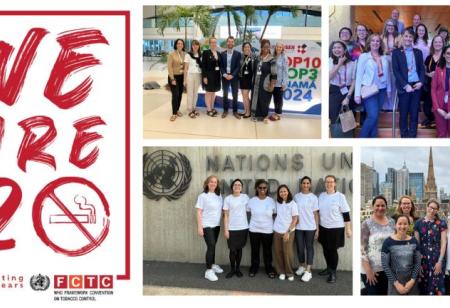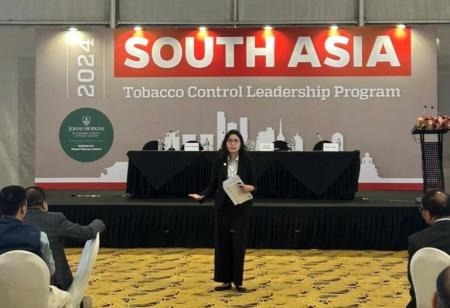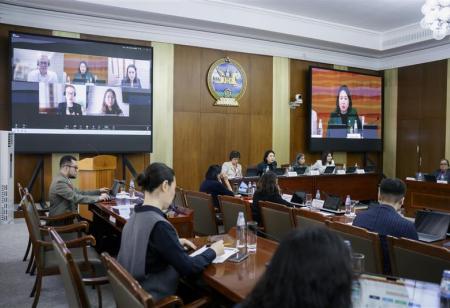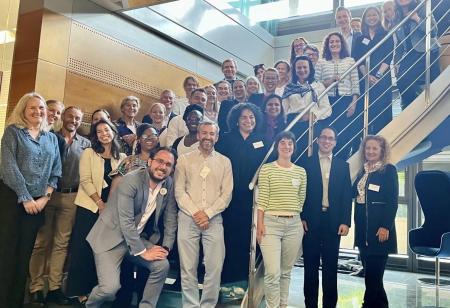
Australia: McCabe Centre’s 9th International Legal Training Course - 10 June 2019
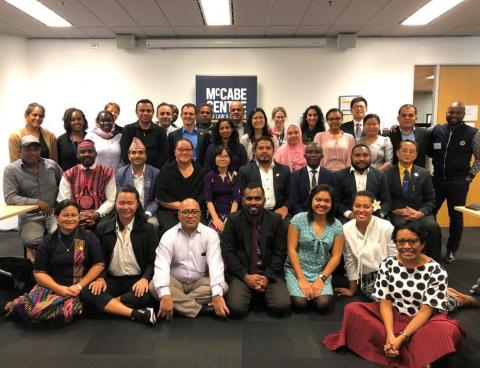
Originally posted at mccabecentre.org
Last month, the McCabe Centre for Law and Cancer welcomed 27 participants from 19 countries to Melbourne, Australia for its 9th International Legal Training Course.
The three-week Course, supported by the Australian Department for Foreign Affairs and Trade, brings together lawyers and policymakers from low- and middle-income countries to build their understanding, knowledge and capacity in the use of law to prevent cancer and other non-communicable diseases (NCDs).
Over the three weeks, the participants were involved in a variety of presentations and group activities on a broad range of topics, such as: global governance, human rights, tobacco control, obesity prevention and trade law.
With strengthened knowledge and understanding, participants are empowered to effect changes in law and policy to improve health outcomes in their countries.
Taking what they have learned, participants nominate a project that they continue to progress once they return home; ranging from creating better multisectoral coordination in PNG to strengthening WHO Framework Convention for Tobacco Control implementation in Sierra Leone.
One of the participants, Silivia Tavite, the Director of Department of Health in Tokelau, has chosen to focus on tobacco control.
“NCDs are really affecting our community, our lifestyle. Our tobacco control policy was endorsed in 2016 with a target that by 2020, Tokelau would be smoke-free,” says Silvia.
Through the Course, Silivia has deepened her understanding of how crucial law and multisectoral collaboration are in achieving a smoke-free Tokelau by 2020.
“Most of the things I’ve heard from the discussion, especially in health is not new for me, but the main thing for me that I’ve learnt is learning about the law; learning about trade and how to put it together with health.
“For us working in NCD, we know that it is a multidimensional issue and it needs a multidisciplinary approach, but how to actually implement it is the challenge for us. We need to break the barriers between trade, economics, health and law in order for us to work together,” says Silivia.
Bringing together lawyers and policymakers from multiple sectors and countries creates a rich learning environment, helping participants understand new perspectives and accept expertise from different disciplines.
“Having people from other disciplines supporting the fight against NCDs, I see it as really beneficial in my community…I know how much this training has changed majority of lawyers in the program, and me from a health perspective to accept the involvement of lawyers in the fight against NCDs,” says Silivia.

